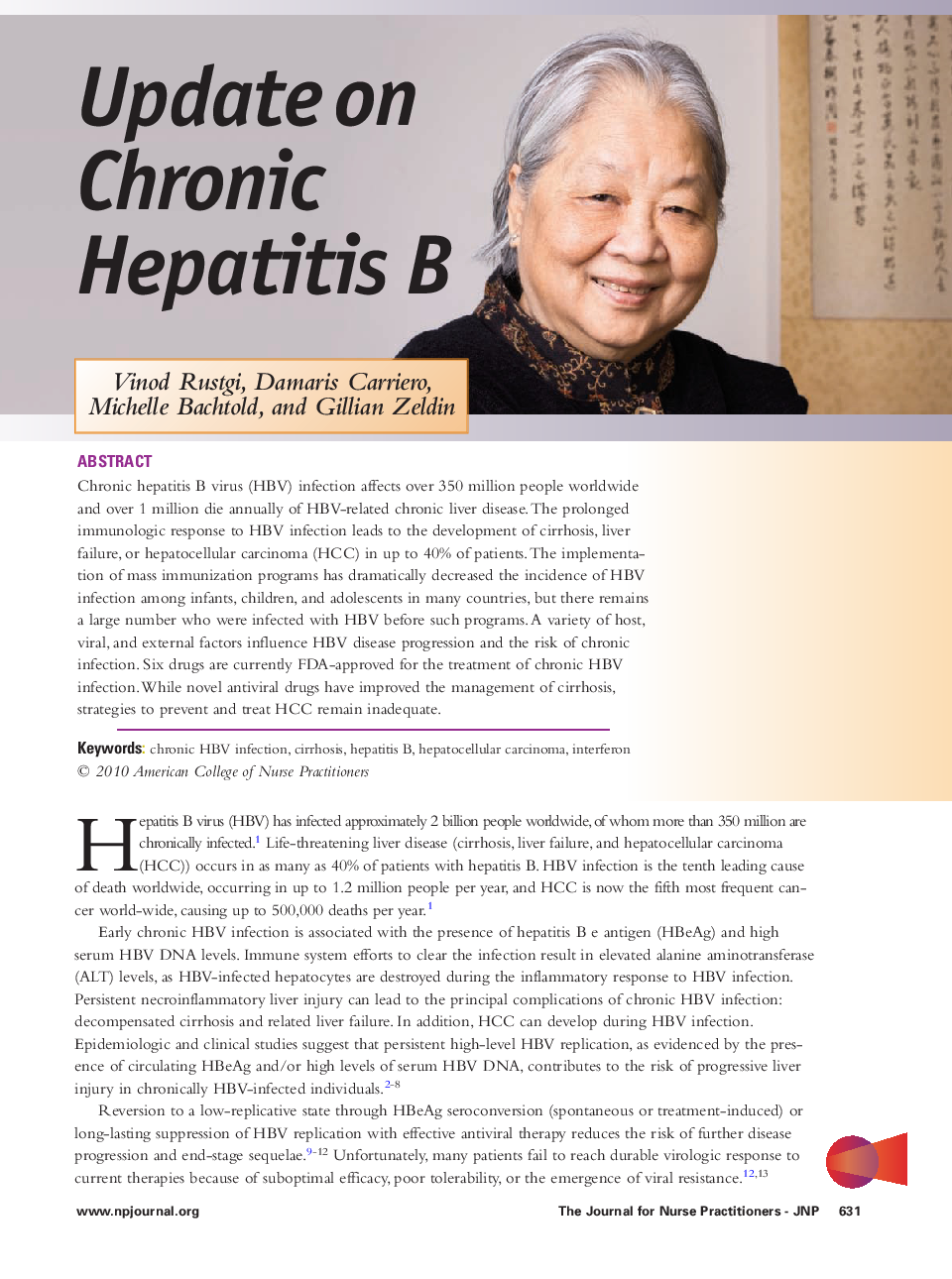| Article ID | Journal | Published Year | Pages | File Type |
|---|---|---|---|---|
| 2662591 | The Journal for Nurse Practitioners | 2010 | 9 Pages |
Chronic hepatitis B virus (HBV) infection affects over 350 million people worldwide and over 1 million die annually of HBV-related chronic liver disease. The prolonged immunologic response to HBV infection leads to the development of cirrhosis, liver failure, or hepatocellular carcinoma (HCC) in up to 40% of patients. The implementation of mass immunization programs has dramatically decreased the incidence of HBV infection among infants, children, and adolescents in many countries, but there remains a large number who were infected with HBV before such programs. A variety of host, viral, and external factors influence HBV disease progression and the risk of chronic infection. Six drugs are currently FDA-approved for the treatment of chronic HBV infection. While novel antiviral drugs have improved the management of cirrhosis, strategies to prevent and treat HCC remain inadequate.
